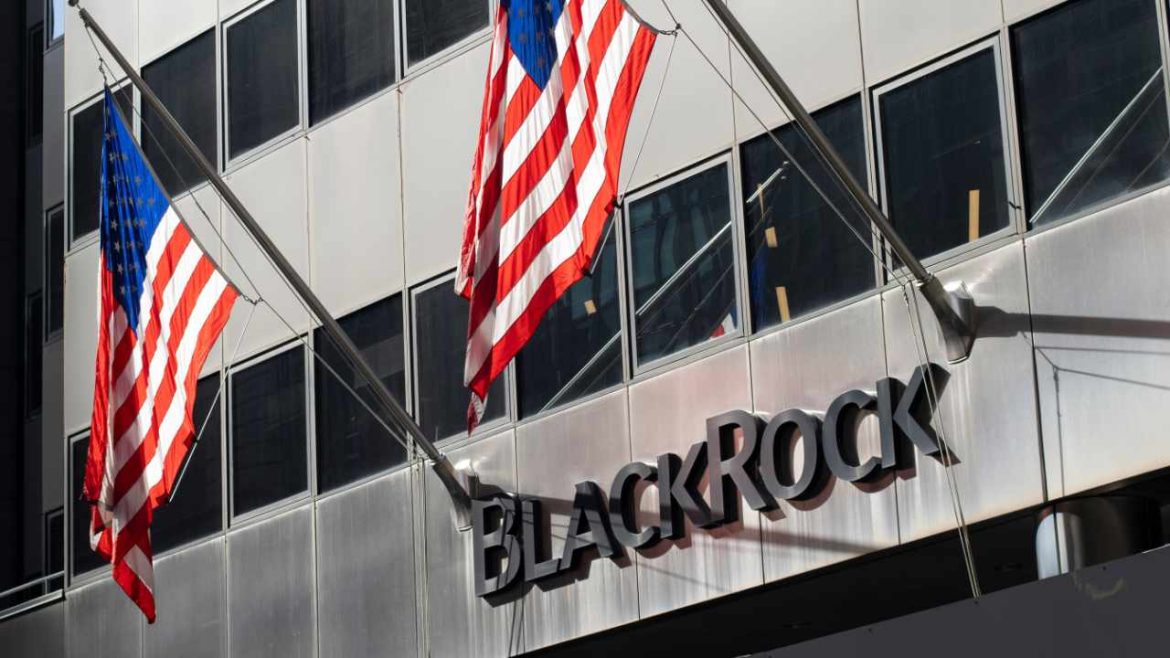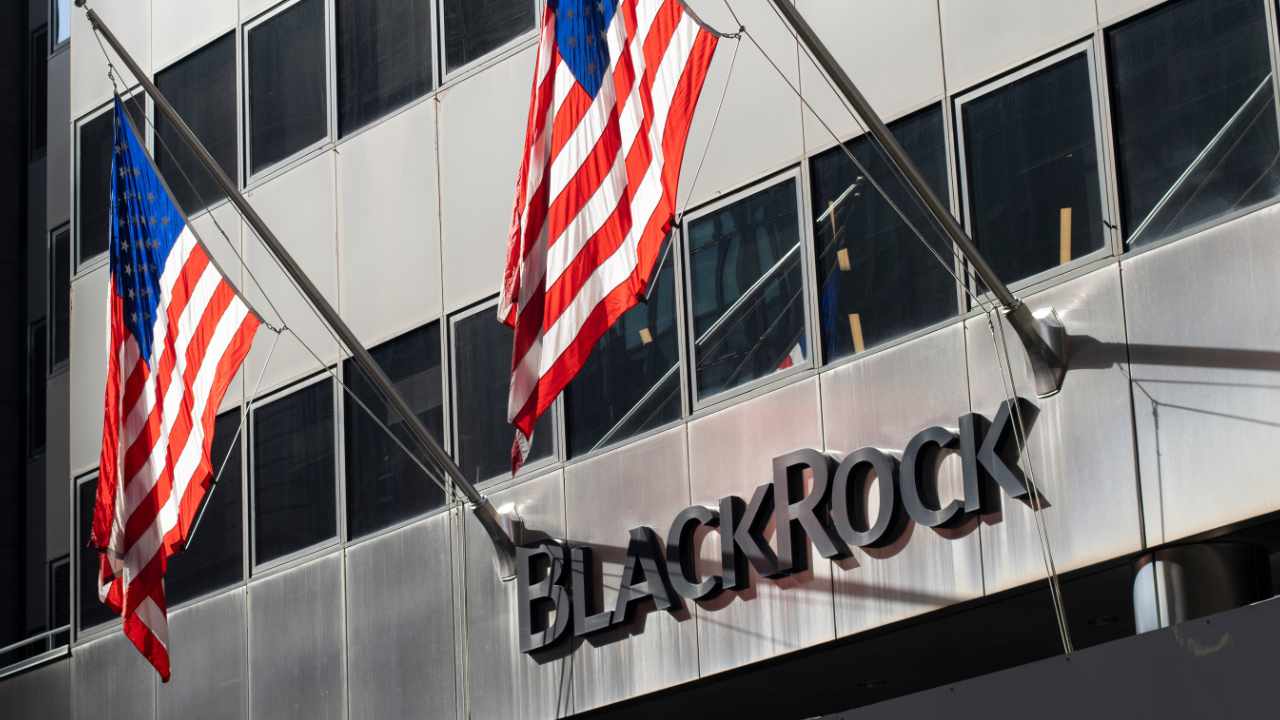The financial landscape is constantly evolving, with new investment vehicles emerging and traditional powerhouses adapting to changing investor sentiment. One of the most significant recent developments is the rise of Bitcoin ETFs, and BlackRock, the world’s largest asset manager, is at the forefront of this revolution. Its Bitcoin ETF, IBIT, is not just another product; it’s a game-changer, challenging established norms and potentially reshaping the future of investment. The recent news of BlackRock’s Bitcoin ETF out-earning its flagship S&P 500 fund is a seismic event, signaling a fundamental shift in institutional investment focus towards cryptocurrencies. This report delves into the implications of this phenomenon, examining the factors driving IBIT’s success, its impact on the broader market, and the potential challenges that lie ahead.
The Rise of IBIT: A New Investment Powerhouse
BlackRock’s iShares Bitcoin Trust (IBIT) has quickly become a dominant force in the Bitcoin ETF market. Its success can be attributed to several key factors:
First-Mover Advantage and Brand Recognition
BlackRock’s reputation as a trusted and established asset manager gave IBIT a significant advantage over competitors. Investors were more likely to entrust their capital to a firm with a proven track record and a robust regulatory framework. Moreover, BlackRock aggressively campaigned for a spot Bitcoin ETF, paving the way for IBIT’s approval. The company’s extensive distribution network and marketing prowess further amplified IBIT’s reach, making it the go-to choice for many institutional and retail investors.
Convenience and Accessibility
IBIT offers investors a convenient and accessible way to gain exposure to Bitcoin without the complexities of directly purchasing and storing the cryptocurrency. This is particularly appealing to institutional investors and those new to the crypto market. IBIT provides a secure and familiar structure, replicating the price performance of Bitcoin through a traditional exchange-traded product. This ease of access has democratized Bitcoin investment, attracting a broader range of participants.
Cost-Effectiveness
IBIT offers a competitive fee structure, making it an attractive option for investors looking to minimize expenses. This is a crucial factor in the ETF market, where even small differences in fees can significantly impact returns over time. BlackRock’s economies of scale and operational efficiency allow it to offer lower fees compared to many competitors, enhancing IBIT’s appeal.
Strategic Timing
The launch of IBIT coincided with a period of increasing institutional interest in Bitcoin. This surge in demand, coupled with BlackRock’s marketing prowess, fueled IBIT’s rapid growth. The timing was impeccable, as it capitalized on the growing acceptance of Bitcoin as a legitimate asset class and the increasing demand for regulated investment vehicles in the crypto space.
Dethroning the S&P 500 Fund: A Symbolic Victory
The fact that IBIT is now generating more fee revenue than BlackRock’s flagship S&P 500 fund is a symbolic victory for the cryptocurrency market. It underscores the growing acceptance of Bitcoin as a legitimate asset class and signals a shift in institutional investment priorities. This milestone is not just about the numbers; it represents a fundamental change in the way investors perceive risk and opportunity. The S&P 500 fund has long been the cornerstone of many investment portfolios, representing a diversified basket of the largest U.S. companies. For IBIT to surpass it in fee generation demonstrates the immense investor demand for Bitcoin exposure and the willingness to allocate capital to this emerging asset class.
The Ripple Effect: Impact on the Crypto Market
IBIT’s success has had a profound impact on the broader crypto market:
Increased Liquidity and Trading Volumes
IBIT has contributed to increased liquidity and trading volumes in the Bitcoin market, making it easier for investors to buy and sell the cryptocurrency. The launch of Bitcoin ETF options, starting with IBIT, further enhances market liquidity, reducing volatility and attracting institutional participation. This allows investors to manage risk and capitalize on the growing market more effectively.
Mainstreaming Cryptocurrency
IBIT has helped to mainstream cryptocurrency by providing a regulated and accessible investment vehicle for a wider range of investors. This increased accessibility has encouraged greater adoption and integration of Bitcoin into traditional financial systems. The endorsement from a leading financial institution like BlackRock has helped to dispel doubts and concerns among some investors, paving the way for broader acceptance.
Price Appreciation
The influx of capital into IBIT has contributed to the appreciation of Bitcoin’s price. This positive price movement has further fueled investor interest and created a virtuous cycle of demand. As more investors allocate capital to IBIT, the underlying Bitcoin price benefits, creating a positive feedback loop.
Legitimization of Bitcoin
By offering a Bitcoin ETF, BlackRock has legitimized Bitcoin as an investment asset. This endorsement from a leading financial institution has helped to dispel doubts and concerns among some investors. The regulatory approval and oversight of IBIT provide a level of security and transparency that was previously lacking in the crypto market, making it more attractive to a wider range of investors.
Challenges and Considerations
While IBIT’s success is undeniable, it’s important to acknowledge the challenges and considerations that lie ahead:
Volatility
Bitcoin remains a volatile asset, and IBIT’s performance is directly tied to the price fluctuations of Bitcoin. This volatility can deter some investors and create periods of significant drawdowns. The crypto market is known for its price swings, and investors must be prepared for the potential risks associated with this volatility.
Regulatory Uncertainty
The regulatory landscape for cryptocurrencies is still evolving, and changes in regulations could impact IBIT’s operations and performance. For example, the iShares Bitcoin Trust ETF is not an investment company registered under the Investment Company Act of 1940, meaning it is not subject to the same regulatory requirements as mutual funds or ETFs registered under that Act. This regulatory uncertainty could pose challenges for IBIT and the broader crypto market.
Competition
The Bitcoin ETF market is becoming increasingly competitive, with new entrants vying for market share. IBIT will need to continue innovating and differentiating itself to maintain its leadership position. Competitors like Fidelity and Ark Invest have also launched Bitcoin ETFs, and the market is likely to become even more crowded in the future.
Outflows and Market Sentiment
While IBIT has experienced significant inflows, it is also subject to outflows, as demonstrated by a recent record outflow of US$333 million. These outflows can be driven by changes in market sentiment or broader economic conditions. Investors must be aware of the potential for outflows and the impact they can have on the performance of IBIT.
Beyond Bitcoin: A Glimpse into the Future
BlackRock’s foray into Bitcoin ETFs may be just the beginning. The company’s success with IBIT could pave the way for similar ETFs based on other cryptocurrencies or digital assets. This would further expand the accessibility of the crypto market and potentially revolutionize the way investors allocate capital. Furthermore, BlackRock’s support for innovative energy technologies suggests a broader vision that aligns with the evolving landscape of sustainable investments. This forward-thinking approach positions BlackRock as a key player in shaping the future of finance.
Conclusion: A New Era of Investment
BlackRock’s Bitcoin ETF, IBIT, has undeniably disrupted the investment landscape. Its rapid ascent to prominence, culminating in surpassing its flagship S&P 500 fund in fee generation, marks a pivotal moment for the cryptocurrency market. While challenges remain, IBIT’s success signals a new era of investment, one where digital assets are increasingly integrated into mainstream portfolios. The long-term implications of this shift are yet to be fully realized, but one thing is clear: the financial world is changing, and BlackRock is leading the charge. The emergence of IBIT is a testament to the growing demand for crypto exposure and the transformative power of innovation in the financial industry. As institutional adoption continues to rise, we can expect to see further evolution in the landscape, with Bitcoin and other digital assets playing an increasingly prominent role in the portfolios of investors worldwide. IBIT’s story is not just about Bitcoin; it’s about the future of investment itself.





